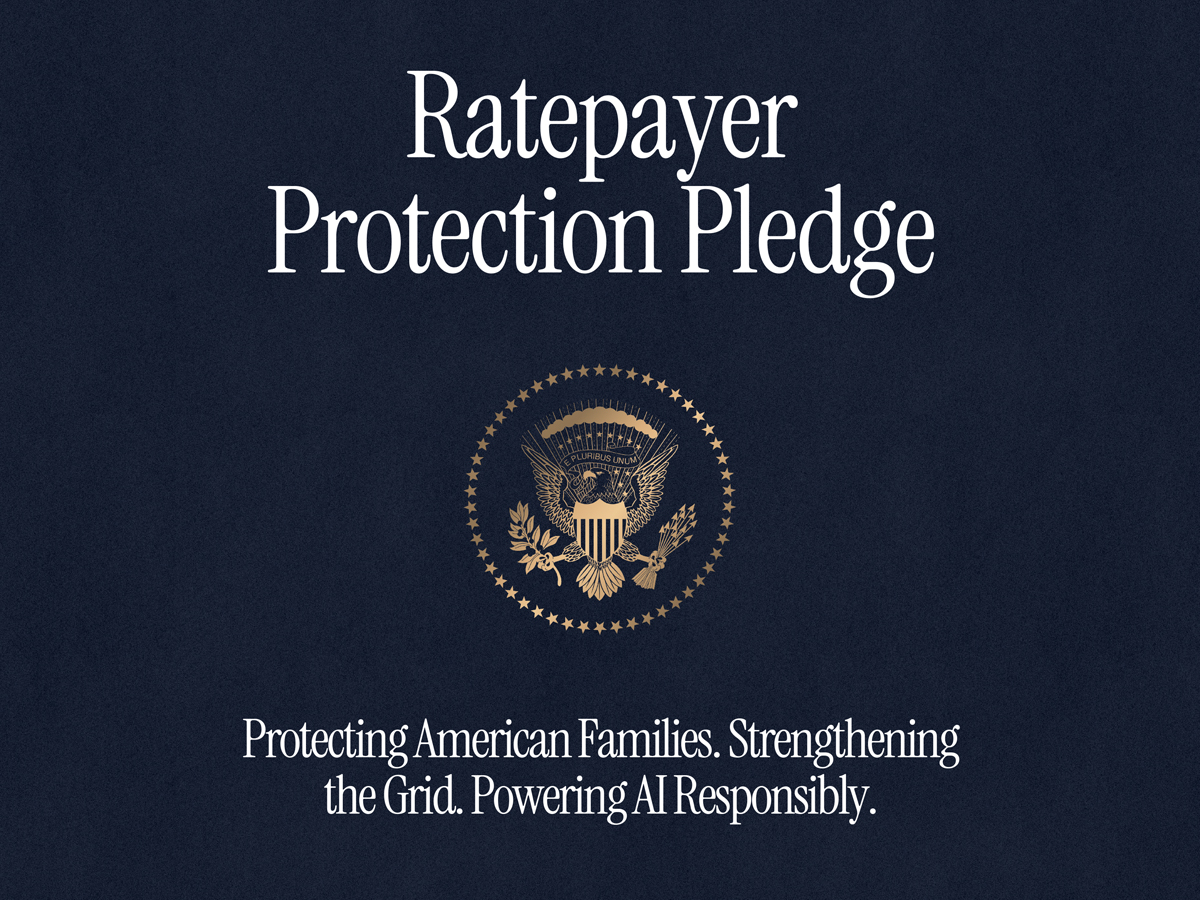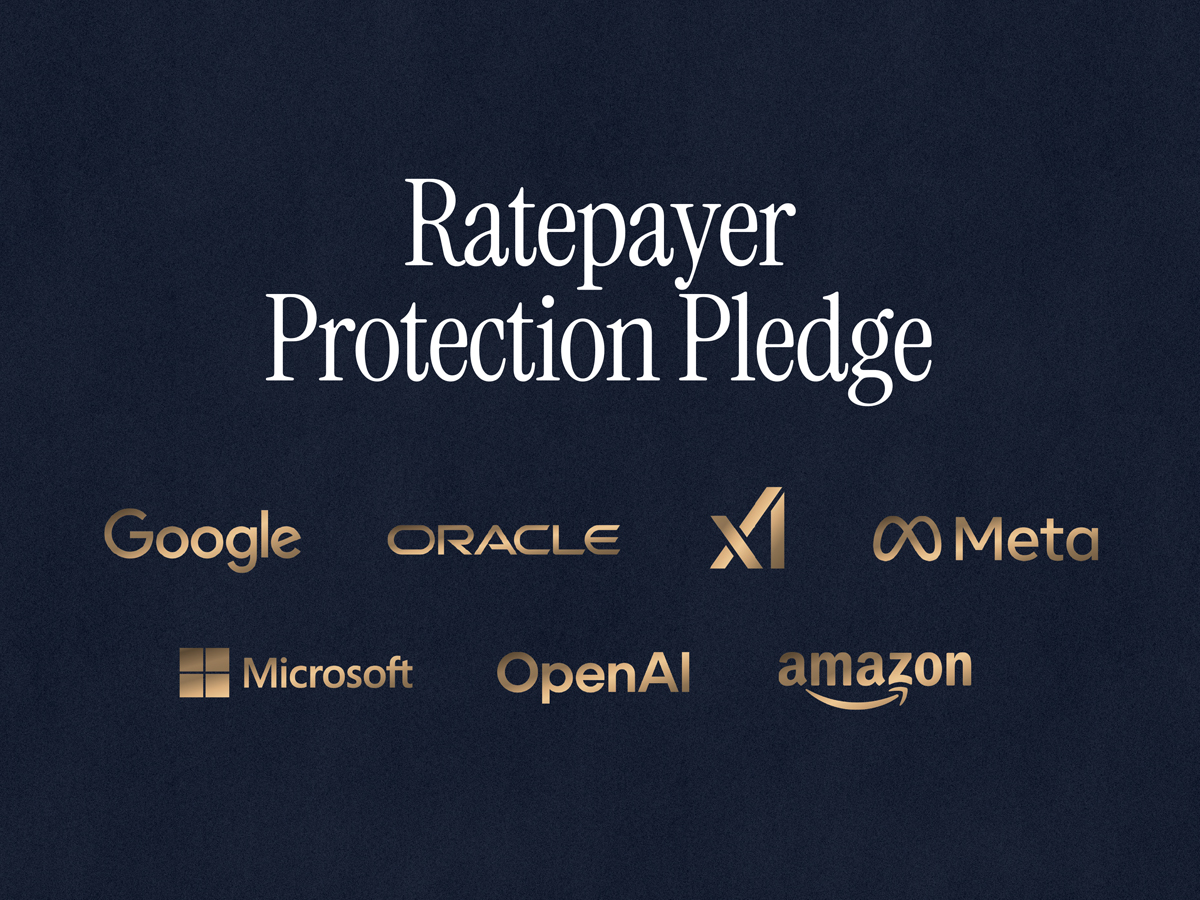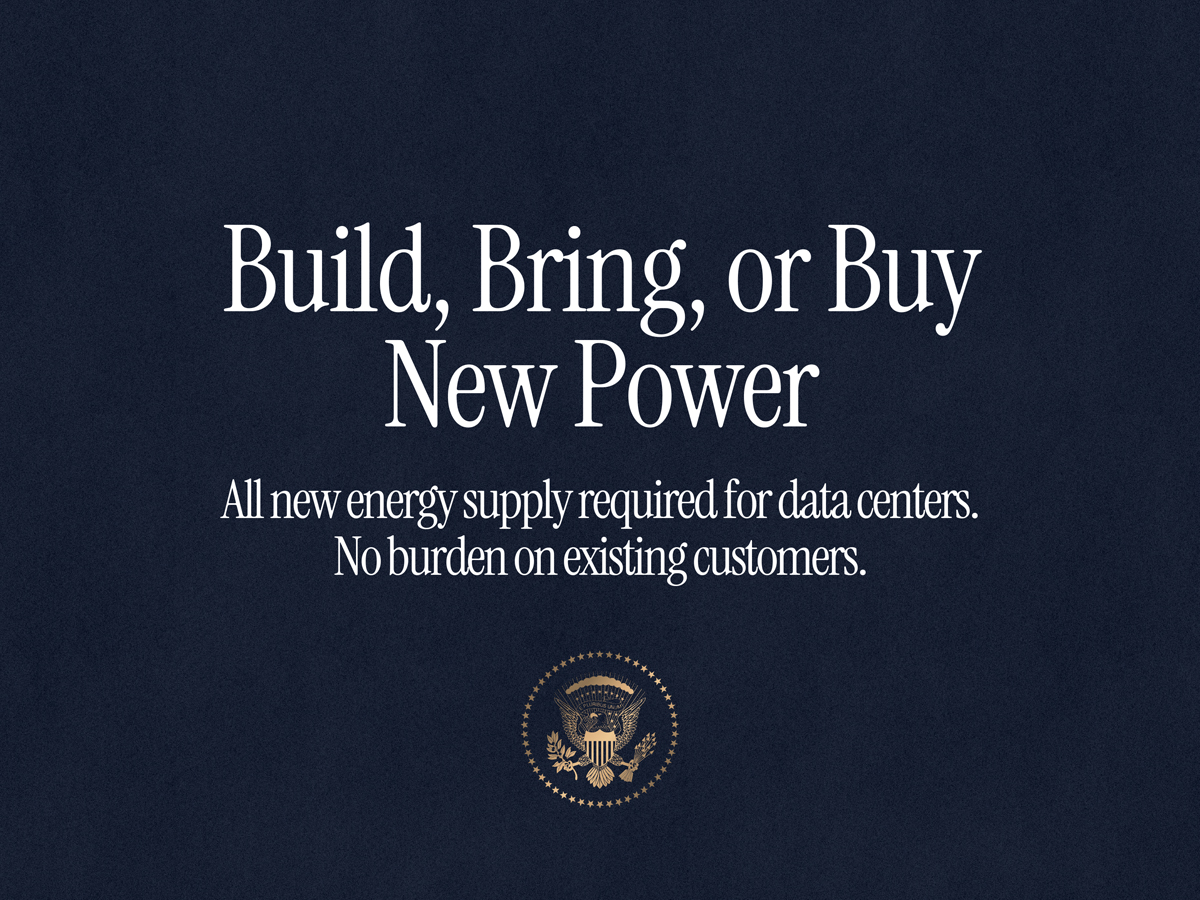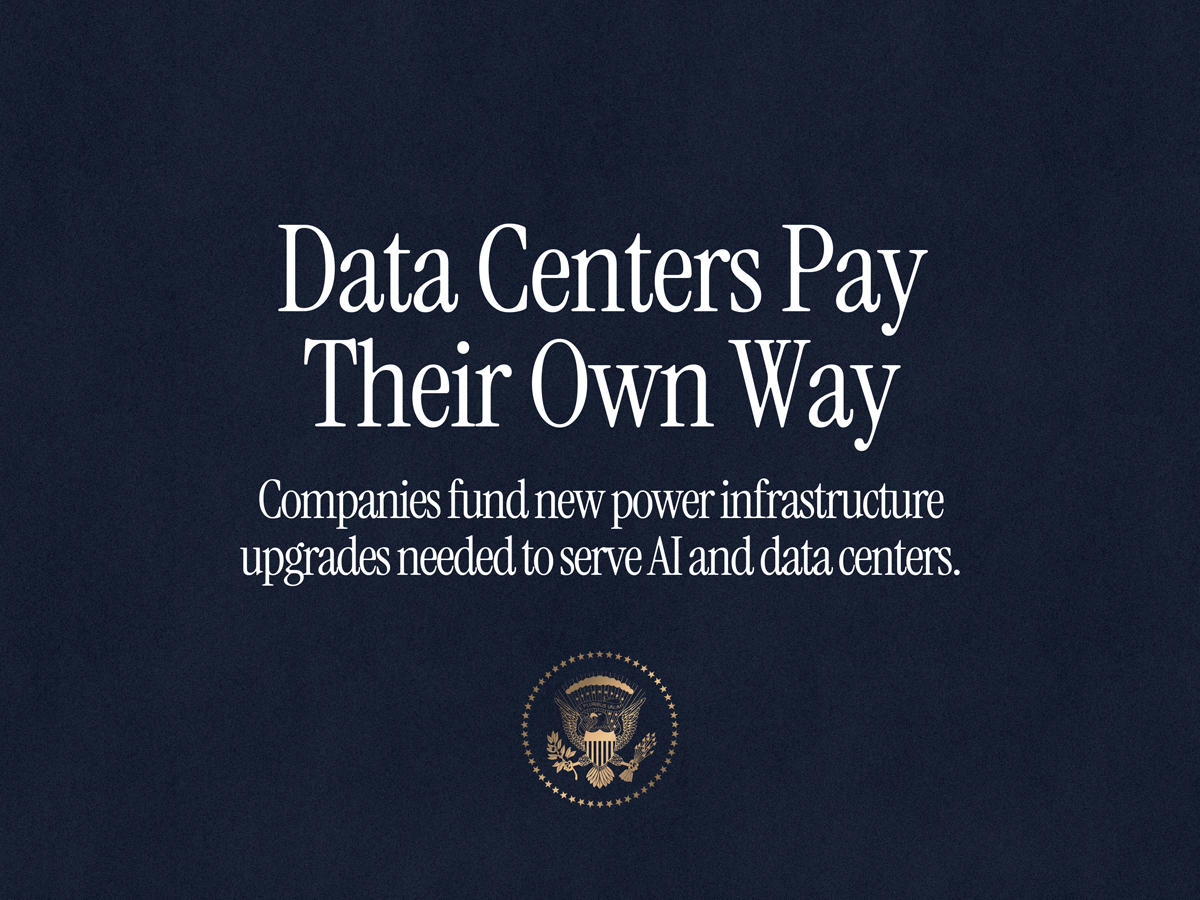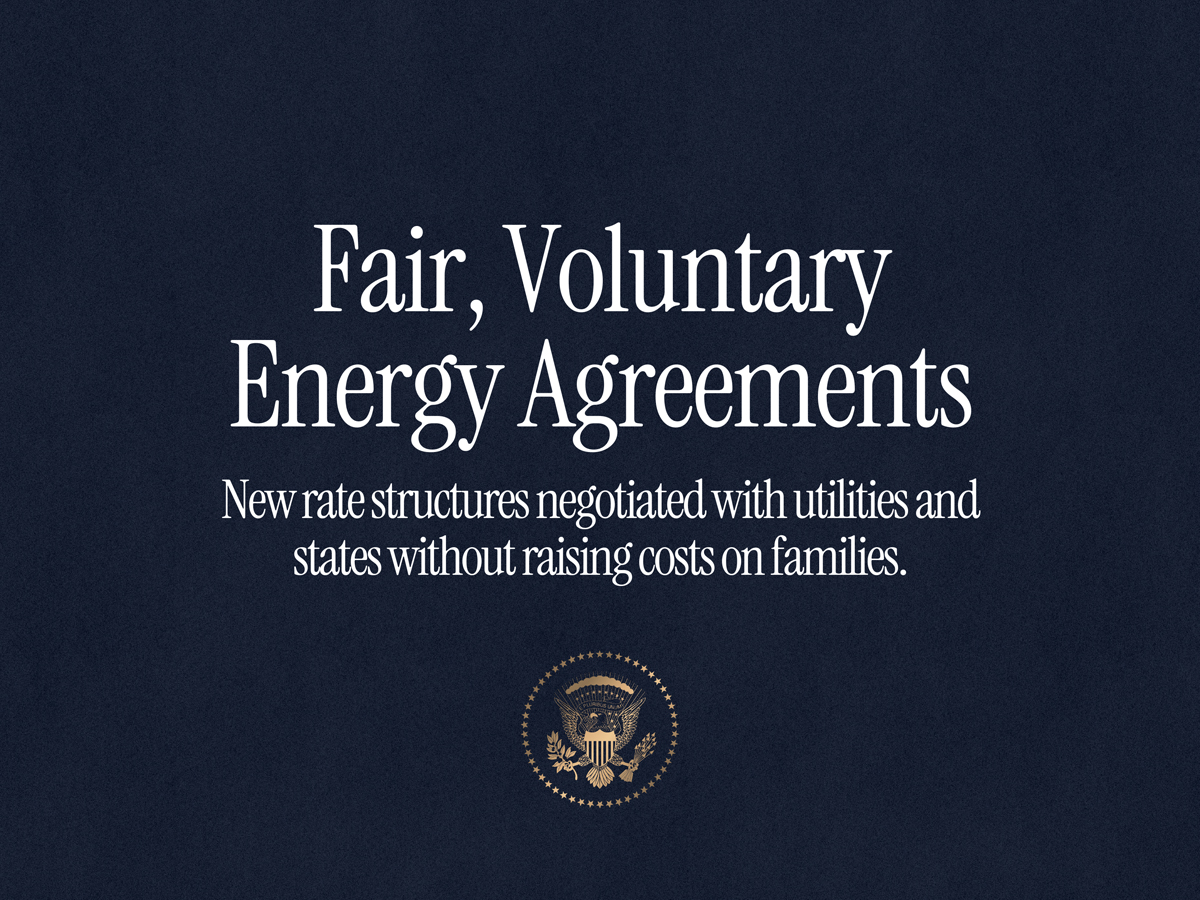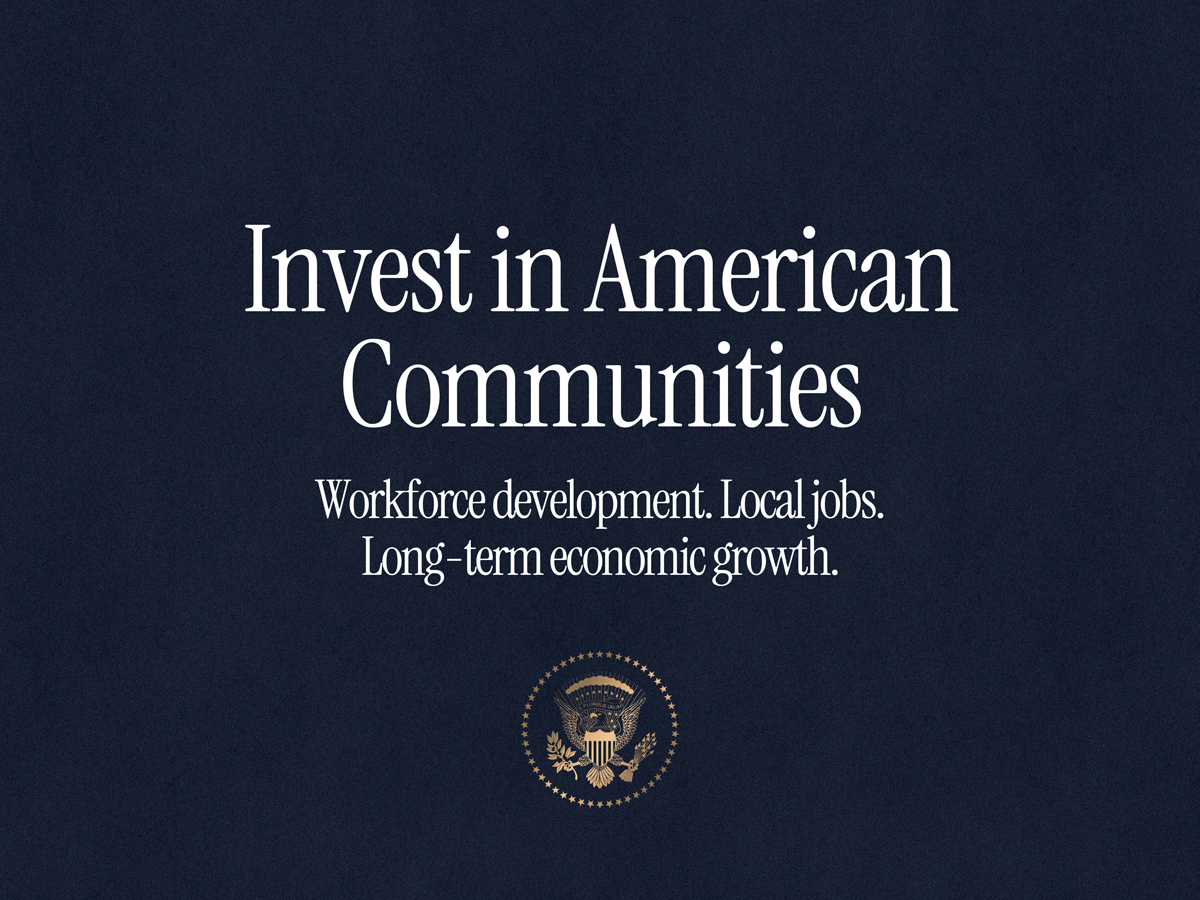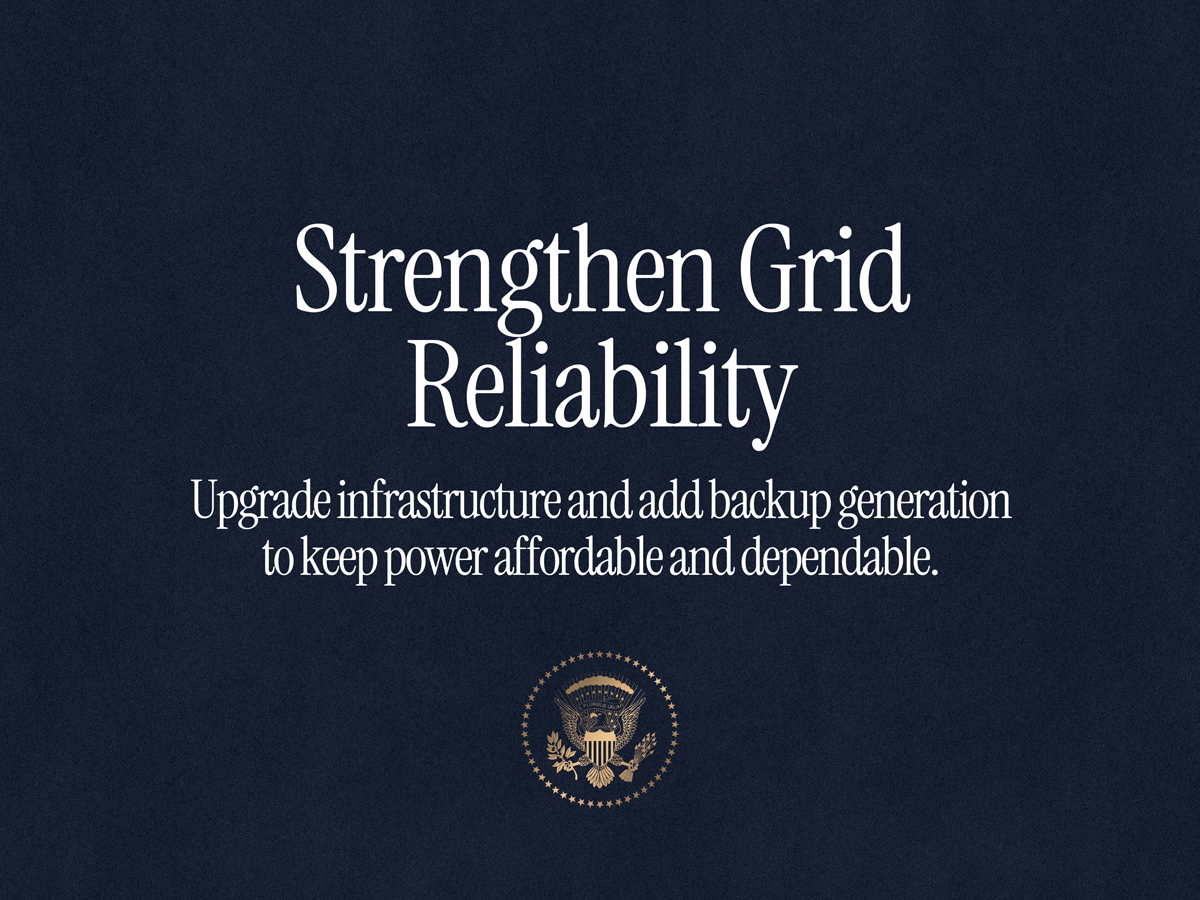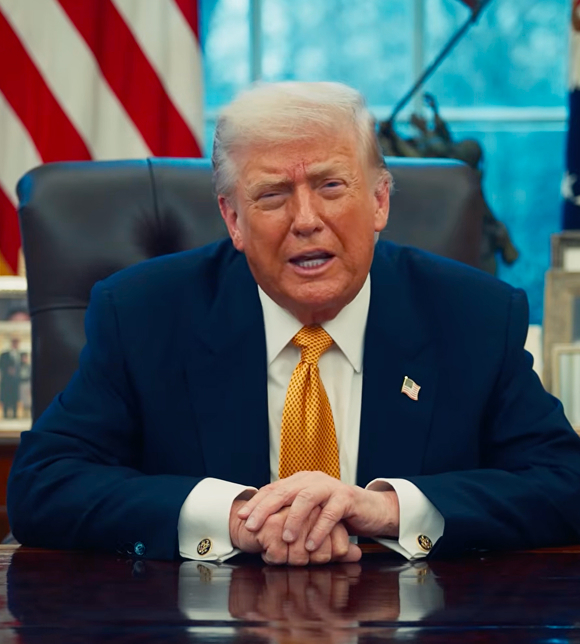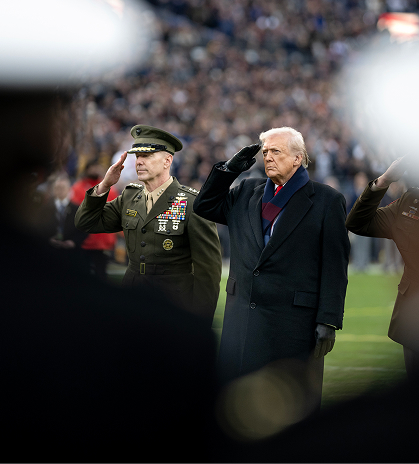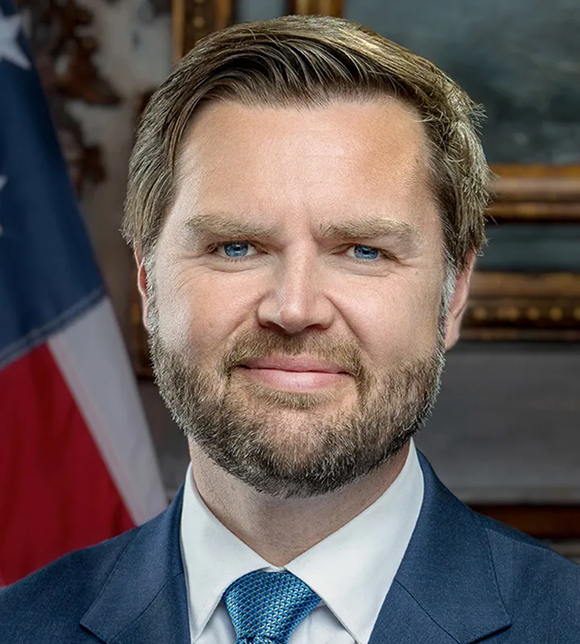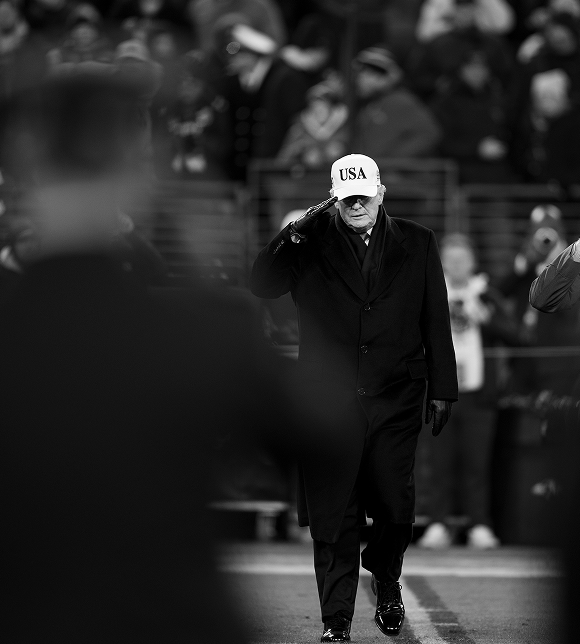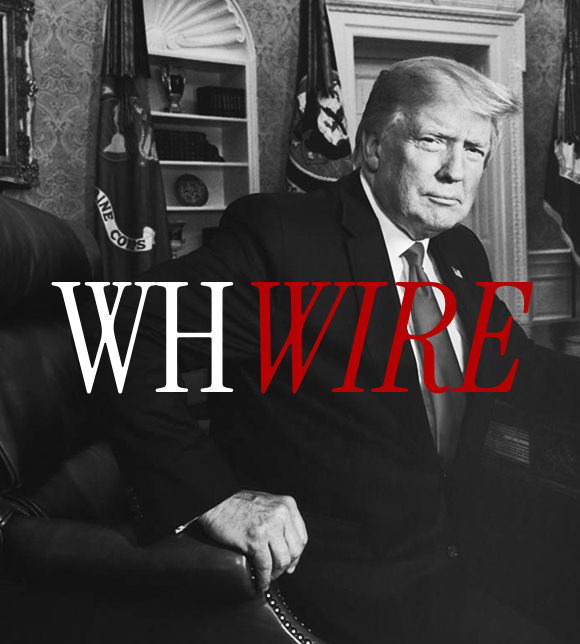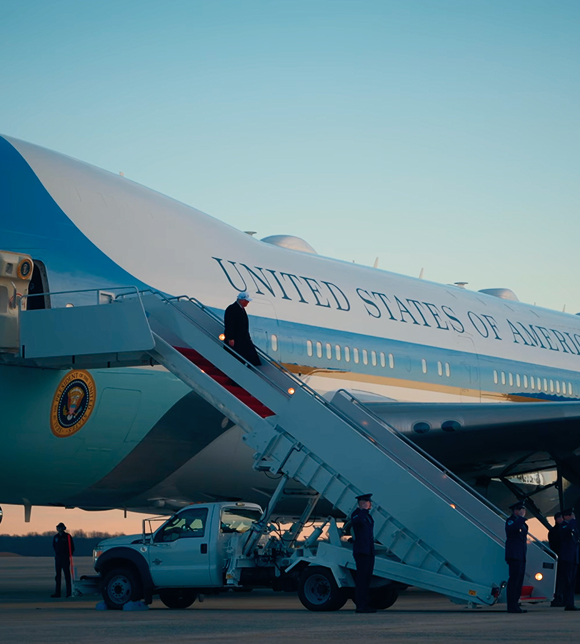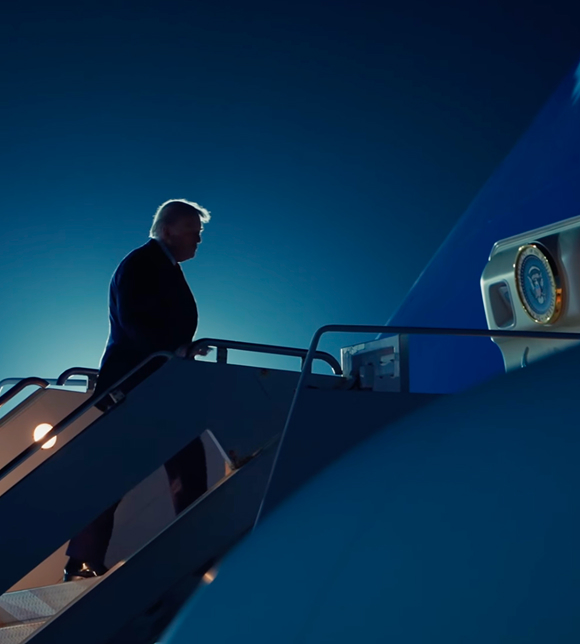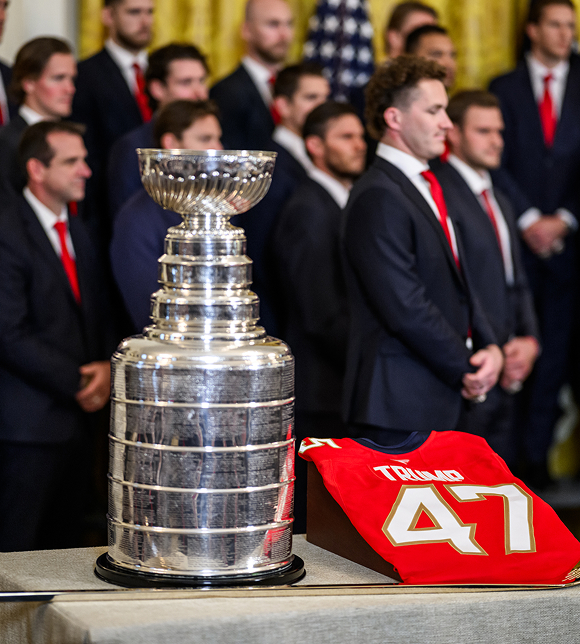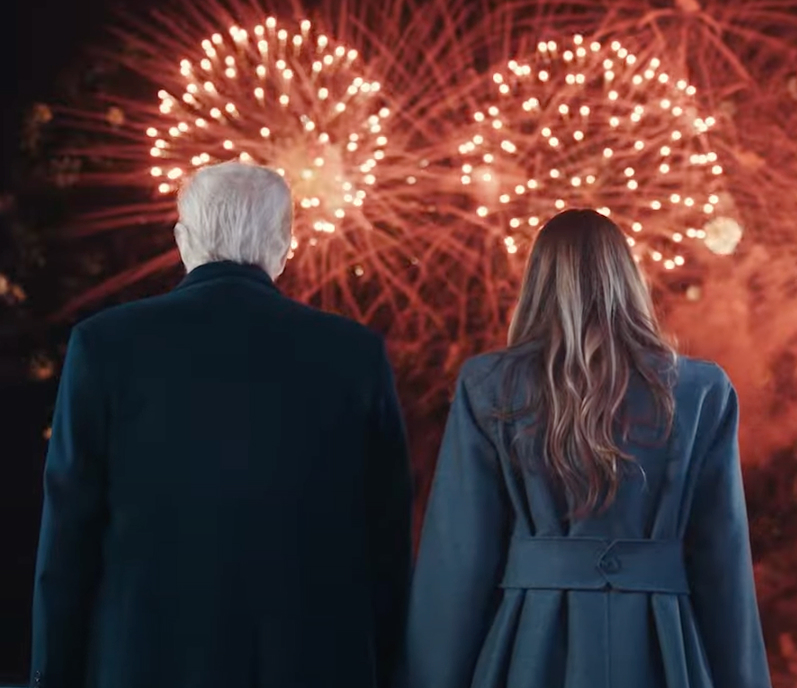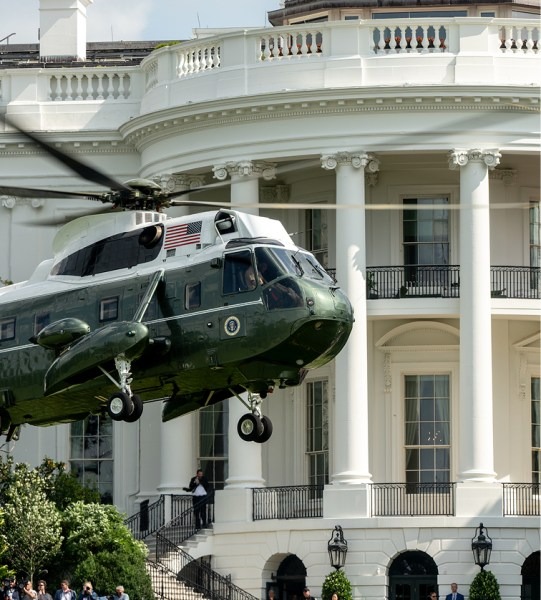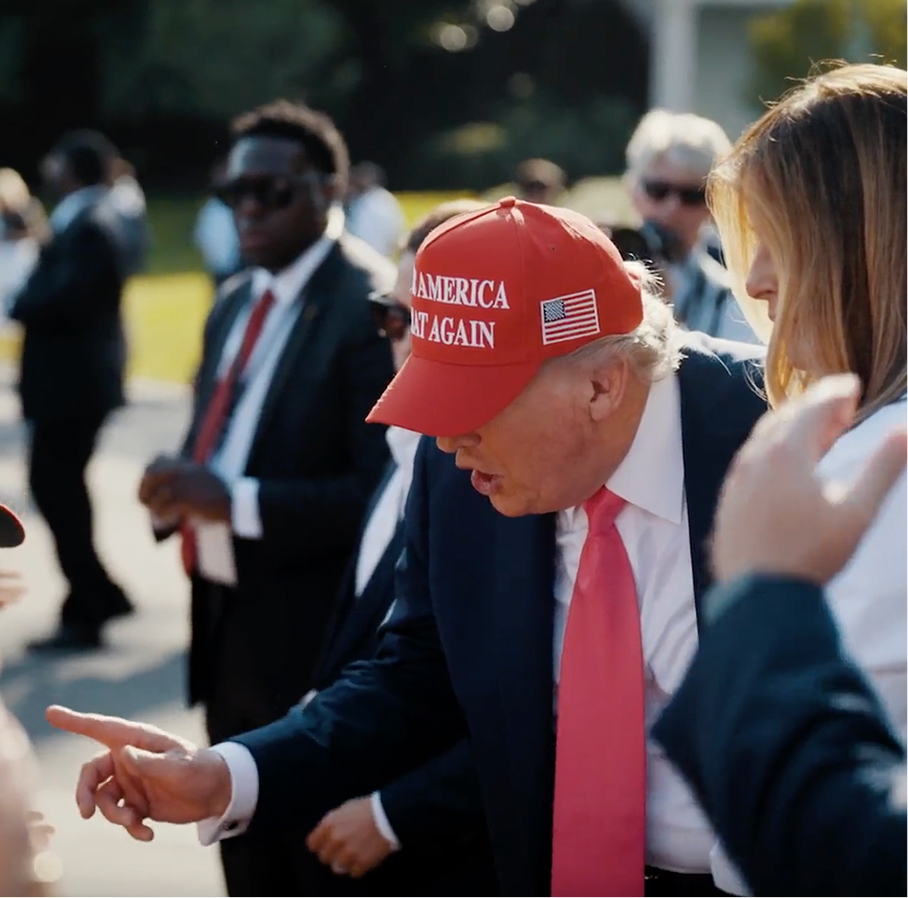President Trump Secures Historic Commitment to Keep Electricity Costs Down Amid Data Center Boom
Under President Donald J. Trump’s leadership, America’s leading AI and technology companies gathered at the White House to sign the Ratepayer Protection Pledge. This landmark commitment — first announced by President Trump in his State of the Union address — ensures the rapid growth of AI data centers powers American innovation without raising electricity costs for families and communities.
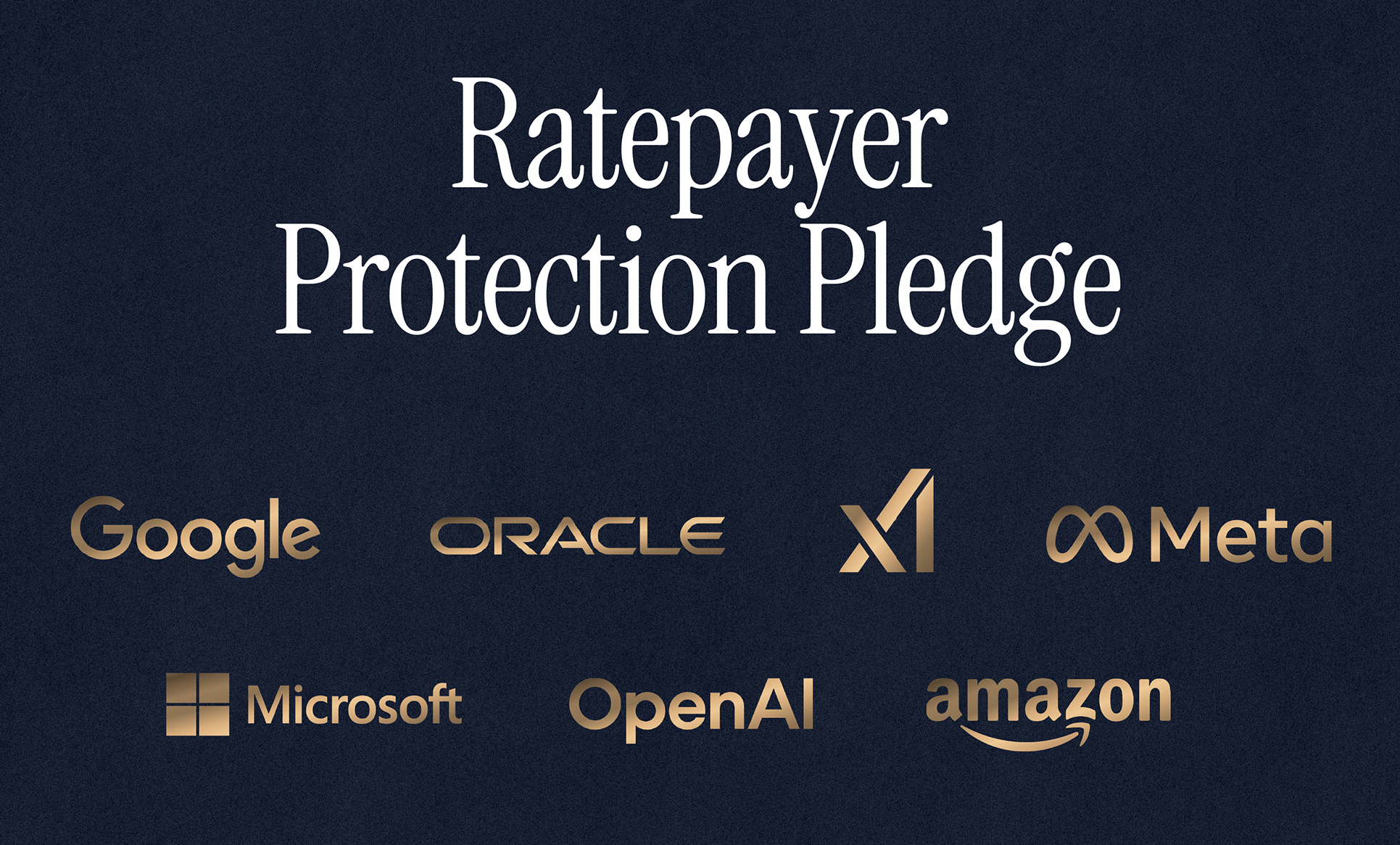
The signing marks a major victory for energy affordability, American innovation, and working families:
President Trump: “Today, we follow through on an announcement I made in my State of the Union address last week as America’s largest tech companies officially sign the Ratepayer Protection Pledge. It’s a big deal; it’s going to have a tremendous impact on electricity costs… Under this new agreement, Big Tech companies are committing to fully cover the cost of increased electricity production required for AI data centers — and that would mean prices for American communities will not go up, but in many cases, will actually come down.”
Secretary of Energy Chris Wright: “We’re going to win in AI and we’re going to stop the rise of electricity prices because of the seven leaders that are sitting around this table… The President recognized from the start [that] we have to lead in AI and we have to stop the electricity price rise, and those are not in contradiction. These companies are smart, they’re powerful, they’re strong — they can build power. Partner with them. All of them have embraced it.”
Speaker Mike Johnson: “This is a win-win-win across the board. You have everybody who has come to the table in good faith, under the leadership of this extraordinary President, to make this happen for the country. It’s at the perfect time. Trust is not given by communities and local stakeholders; it is built over time — and I think this pledge is a huge part of building that important foundation for the future.”
Sen. Jon Husted: “What you’re offering today with… the Ratepayer Protection Pledge, Mr. President, is great leadership because this solves the problem the people were worried about, and as the data centers build new power plants, it leads to energy stability—affordable, reliable electricity for American ratepayers, helping them win the affordability battle.”
White House Office of Science and Technology Policy Director Michael Kratsios: “American AI leadership should never come at the cost of hardworking Americans’ ability to pay their electricity bills… Through this pledge, we are challenging all of these companies to think bigger when it comes to data center construction by identifying ways that we can drive down the overall electricity cost, ultimately strengthen grid resilience, and to create more American jobs in the communities that choose to build all of these data centers. By signing this pledge, all these companies here are making themselves accountable to you, Mr. President, and to the American people.”
White House Special Advisor for AI and Crypto David Sacks: “Today President Trump obtained a pledge from America’s leading tech companies that new data centers would not increase electricity prices for residential consumers. These companies (including Amazon, Google, Meta, Microsoft, OpenAI, Oracle, and xAI) signed the ‘Ratepayer Protection Pledge; under which they agree to cover the costs of all new power generation required for their data centers, ensuring such costs are not passed onto American households. This is a much better approach to affordability than Bernie Sanders’ total ban on new data centers, which would halt the construction boom currently driving wage growth and job growth for blue-collar workers. In fact, the Ratepayer Protection Pledge will lower electricity prices when AI companies pay for grid upgrades and sell their excess power back to the grid. Since the beginning of his second term, President Trump has championed the idea of letting our leading AI companies become power companies, and now this idea is becoming a reality thanks to his leadership and the commitments of these strong American companies. The right approach to data centers is not to stop progress altogether, but rather to protect residential rate payers from price increases, while making it easier to stand up new power generation.”
Amazon Web Services CEO Matt Garman: “Amazon is proud to have signed the Ratepayer Protection Pledge at the White House. We welcome the Administration’s leadership on this issue, and the pledge’s commitments which establish an important baseline that will protect ratepayers and enable responsible, long-term energy partnerships that strengthen the grid and communities where data centers operate… The Ratepayer Protection Pledge marks an important milestone as a national commitment to a stronger grid that supports American families, fuels our economy, and keeps the United States at the forefront of global innovation.”
Edison Electric Institute President and CEO Drew Maloney: “We appreciate President Trump’s focus on ensuring that our nation can drive innovation while also protecting Americans who need affordable, reliable energy. Our industry has built a strong record of working with the tech community on responsible agreements that benefit local communities and help strengthen the grid for the future. We are excited for the next phase of American innovation that will support jobs, help families, and drive economic growth.”
Entergy Chair and CEO Drew Marsh: “We proactively worked with our state leaders to recruit a new industry with attractive power agreements that protect and benefit our existing customers… This announcement further supports the Trump administration’s ratepayer protection pledge unveiled yesterday at the White House. We remain in close contact with the administration and look forward to our continued partnership to ensure these protections for our customers and do our part in helping the United States secure the energy it needs to extend its leadership in global AI advancements.”
Google President and CIO Ruth Porat: “Google’s support of the Ratepayer Protection Pledge affirms our long-held commitment to protect energy affordability for American households, accelerate breakthroughs to secure America’s energy future, and deliver energy infrastructure — all of which are critical to maintaining America’s global leadership in this era of innovation. We appreciate all the Trump Administration is doing to secure America’s continued leadership in AI, powered by abundant and affordable energy.”
Google Global Head of Data Center Energy Amanda Peterson Corlo: “The White House Ratepayer Protection Pledge is a critical step toward ensuring that America can affordably and successfully meet growing power demands. We are committed to accelerating the initiatives outlined within the Pledge, and are confident that energy growth and ratepayer protection can go hand-in-hand.”
ITI President and CEO Jason Oxman: “ITI strongly supports President Trump’s leadership in advancing energy policy that fuels innovation, protects American families and businesses, and grows the nation’s economy. President Trump’s vision demonstrates how effective collaboration between government and industry can deliver real results for Americans. The Ratepayer Protection Pledge reflects a thoughtful and responsible approach to balancing U.S. leadership in technology with the fundamental imperative of affordable energy access for all Americans. By bringing together leaders in the tech community and the administration, this initiative reinforces a shared commitment and expands on industry’s ongoing efforts to modernize and strengthen the energy grid, protect ratepayers, create jobs, and build the infrastructure America needs to compete and win in the 21st century. ITI looks forward to continuing constructive engagement as these principles are put into action.”
Meta President and Vice Chairman Dina Powell McCormick: “Under President Trump’s leadership, America is in the middle of the biggest infrastructure boom since World War II. We’re incredibly proud of the thousands of jobs Meta data centers are creating across the country, while our investments in small business and workforce training programs ensure Americans have the skills needed for the jobs of tomorrow. As we build for America’s future, the Ratepayer Pledge ensures families aren’t the ones footing the bill for AI’s energy consumption. The pledge gives companies like Meta the certainty we need to keep up the momentum, ensuring that American AI dominance and the prosperity of American families go hand-in-hand.”
Meta Chief Global Affairs Officer Joel Kaplan: “Meta is proud to support President Trump’s Ratepayer Protection Pledge. America is in the middle of the biggest infrastructure boom since World War II, as Meta and others build the infrastructure that will underpin the nation’s economy for years to come. We’re incredibly proud of the thousands of jobs our data centers are creating across the country, especially in places that have historically been left behind. As we lay the foundation for the future of the American economy, the Ratepayer Protection Pledge ensures families aren’t the ones footing the bill for AI’s energy consumption.”
Microsoft President and Vice Chair Brad Smith: “The Ratepayer Protection Pledge is an important step. We appreciate President Trump’s leadership to ensure that data centers don’t contribute to higher electricity prices for consumers.”
OpenAI COO Brad Lightcap: “Building the infrastructure to advance AI is vital for America’s economic competitiveness and for ensuring the benefits of AI reach everyone. At OpenAI, we’re committed to being good neighbors in every community where we build, and that includes paying our own way on energy so our operations don’t raise electricity bills for local residents.”
Oracle: “We are proud to be part of the White House’s mission to advance American AI leadership while protecting the communities in which we build data centers. We are committed to paying our own way on energy, hiring locally, protecting local water resources, and enriching communities across the country. AI isn’t just about technology — it’s about strengthening communities while fueling America’s future.”
Oracle CEO Clay Magouyrk: “I was at the White House today to sign the President’s Ratepayer Protection Pledge and underscored our commitment to advancing American AI leadership while protecting the communities where we build AI data centers… The AI infrastructure we’re building today will be vitally important for America’s global leadership, economy, and national security. It will support a new era of economic growth in our communities for generations to come.”
Oracle Senior Director Melanie Kiely: “Proud of Oracle’s involvement in the Ratepayer Protection Pledge Proclamation. As the demand for digital infrastructure and energy capacity accelerates, it’s critical that growth occurs in a way that protects ratepayers and supports the communities where we build. Responsible infrastructure development requires thoughtful collaboration across government and industry.”
Power the Future Executive Director Daniel Turner: “President @realDonaldTrump’s Ratepayer Protection Pledge is a crucial part of how America can win the AI race. It ensures U.S. dominance in AI while protecting hardworking families from skyrocketing electricity bills.”
SpaceX President and COO Gwynne Shotwell: “As part of today’s commitment, we will take extensive additional steps to continue to reduce the cost of electricity for our neighbors. Mr. President, we want to be on your team to deliver a big win for the American people. xAI will therefore commit to develop 1.2 gigawatts of power as our supercomputer’s primary power source, and that will be for every additional data center as well. We will expand what is already the largest global Megapack power installation in the world. The installation will provide enough backup power to power the city of Memphis, and more than sufficient energy to power to the town of Southaven, Mississippi where the data center resides.”
Southern Company: “Southern Company strongly supports the President’s Ratepayer Protection Pledge and its focus on ensuring that America’s leadership in AI and advanced technologies delivers broad-based benefits for customers and communities. In the Southeast, we are already putting this approach into action—capturing unprecedented economic growth while providing stability and lower bills for existing customers. We believe energy providers and technology companies must work together to meet this generational moment responsibly. That’s why we partner with large customers with clear requirements that they pay their fair share. This approach supports continued investment, keeps costs down for existing customers, and helps ensure the benefits of growth are shared by everyone we serve.”
Taxpayers Protection Alliance Chief Regulatory Analyst Juan Londoño: “The voluntary nature of today’s pledge is a welcome and sensible approach to addressing soaring energy demands. Allowing companies the flexibility to decide whether to invest in additional generation, pay for grid upgrades, or negotiate rate agreements with utilities is the right framework. Like any large industrial consumer, data center operations have the potential to reduce energy costs for ratepayers—with the right approach and market incentives in place… The Trump administration deserves credit for pursuing a market-driven solution to a real and growing challenge.”
xAI: “xAI is committed to deploying artificial intelligence that makes the lives of people better as well as adding more power near our datacenters to reduce the cost of energy for the American people”
